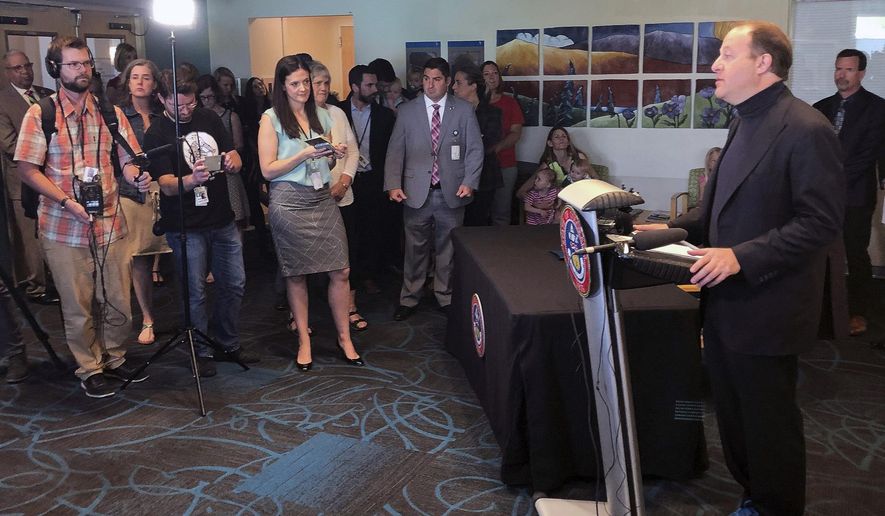DENVER (AP) - Colorado’s governor issued an executive order Thursday designed to address the state’s poor vaccination rates for children, but he insisted that he will respect existing religious and personal exemptions for parents unwilling to inoculate their children against communicable diseases.
Democratic Gov. Jared Polis’ order on Thursday came as new state data suggest Colorado ranks near the bottom for immunization rates among U.S. states. It also comes amid a national resurgence of measles that has affected more than 1,000 people, according to the U.S. Centers for Disease Control and Prevention.
Some 87.4% of Colorado kindergarten students had vaccinations for measles, mumps and rubella in the 2018-19 school year, down 1.3% from the previous year, according to the state Department of Public Health and Environment. For highly-contagious measles, the CDC recommends a 92% threshold to maintain herd immunity.
More than 9,400 children were hospitalized or treated at emergency rooms for vaccine-preventable diseases in 2017, the state Department of Public Health and Environment says.
The state needs to better inform residents about the benefits of vaccines, make parents aware of low-cost vaccination programs, seek out underserved residents and develop a strategy to confront an anti-vaccination movement that contends some shots are unsafe despite overwhelming evidence to the contrary, said Tony Cappello, director of the department’s Disease Control and Environmental Epidemiology division.
“We need to provide fact-based information to parents so they can make educated, informed decisions,” Cappello told a news conference at Children’s Hospital Colorado in Denver. “This means dispelling misinformation about vaccinations and having correct information in the hands of parents,” he said.
Polis’ order focuses on the education and information front.
It calls for state officials to work more closely with local health specialists to promote vaccination; studying the reasons for what the governor calls “vaccine hesitancy” among parents, and developing information strategies to address those concerns; and helping families on Medicaid and residents in rural and other underserved areas gain access to and pay for recommended vaccines.
The state allows parents to opt out of required school vaccinations for medical, religious and philosophical reasons. Polis, who’s described himself as a libertarian Democrat, stressed Thursday he won’t change that policy.
“We believe that Colorado families should be making their own health care decisions,” he said. “We really view this as the third way between the government forcing people to get shots, which is counterproductive, and simply allowing these rates to go down, which is counterproductive to the public health and results in people dying.”
This spring, hundreds of parents, their children in tow, swarmed the state Capitol to oppose a bill that would have made it harder to qualify for religious or personal exemptions. The bill stalled in the Legislature.
Lawmakers in Oregon, which has one of the highest rates of unvaccinated kindergartners in the country, also killed a bill this year to make it harder for families to opt out.
But next-door Washington state ended most exemptions for the measles vaccine. Maine eliminated religious and philosophical exemptions, and New York legislators were poised Thursday to eliminate a religious exemption.




Please read our comment policy before commenting.